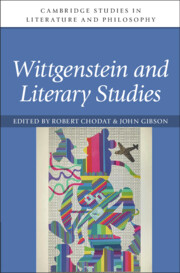292 results
Chapter 4 - Contribution of RADx® Tech to the Rapid Development of COVID-19 Diagnostic Tests
-
-
- Book:
- Accelerating Diagnostics in a Time of Crisis
- Published online:
- 06 January 2024
- Print publication:
- 07 March 2024, pp 74-87
-
- Chapter
- Export citation
The association of anxiety disorders and depression with facial scarring: population-based, data linkage, matched cohort analysis of 358 158 patients
-
- Journal:
- BJPsych Open / Volume 9 / Issue 6 / November 2023
- Published online by Cambridge University Press:
- 15 November 2023, e212
-
- Article
-
- You have access
- Open access
- HTML
- Export citation
Design and implementation of a digital site-less clinical study of serial rapid antigen testing to identify asymptomatic SARS-CoV-2 infection
-
- Journal:
- Journal of Clinical and Translational Science / Volume 7 / Issue 1 / 2023
- Published online by Cambridge University Press:
- 10 May 2023, e120
-
- Article
-
- You have access
- Open access
- HTML
- Export citation
The effectiveness of a primary care-based collaborative care model to improve quality of life in people with severe mental illness: PARTNERS2 cluster randomised controlled trial
-
- Journal:
- The British Journal of Psychiatry / Volume 222 / Issue 6 / June 2023
- Published online by Cambridge University Press:
- 20 April 2023, pp. 246-256
- Print publication:
- June 2023
-
- Article
-
- You have access
- Open access
- HTML
- Export citation
Index
-
- Book:
- Wittgenstein and Literary Studies
- Published online:
- 05 December 2022
- Print publication:
- 23 February 2023, pp 214-216
-
- Chapter
- Export citation
Contributors
-
- Book:
- Wittgenstein and Literary Studies
- Published online:
- 05 December 2022
- Print publication:
- 23 February 2023, pp ix-xi
-
- Chapter
- Export citation
Introduction
-
-
- Book:
- Wittgenstein and Literary Studies
- Published online:
- 05 December 2022
- Print publication:
- 23 February 2023, pp 1-15
-
- Chapter
- Export citation
Contents
-
- Book:
- Wittgenstein and Literary Studies
- Published online:
- 05 December 2022
- Print publication:
- 23 February 2023, pp vii-viii
-
- Chapter
- Export citation
Copyright page
-
- Book:
- Wittgenstein and Literary Studies
- Published online:
- 05 December 2022
- Print publication:
- 23 February 2023, pp vi-vi
-
- Chapter
- Export citation
Abbreviations of Wittgenstein’s Major Works
-
- Book:
- Wittgenstein and Literary Studies
- Published online:
- 05 December 2022
- Print publication:
- 23 February 2023, pp xii-xiv
-
- Chapter
- Export citation

Wittgenstein and Literary Studies
-
- Published online:
- 05 December 2022
- Print publication:
- 23 February 2023
GASKAP-HI Pilot Survey Science III: An unbiased view of cold gas in the Small Magellanic Cloud
-
- Journal:
- Publications of the Astronomical Society of Australia / Volume 39 / 2022
- Published online by Cambridge University Press:
- 05 August 2022, e034
-
- Article
-
- You have access
- Open access
- HTML
- Export citation
Associations among body energy status, feeding duration and activity with respect to diet energy and protein content in housed dairy cows
-
- Journal:
- Journal of Dairy Research / Volume 89 / Issue 2 / May 2022
- Published online by Cambridge University Press:
- 07 April 2022, pp. 128-133
- Print publication:
- May 2022
-
- Article
- Export citation
Scientific access into Mercer Subglacial Lake: scientific objectives, drilling operations and initial observations
-
- Journal:
- Annals of Glaciology / Volume 62 / Issue 85-86 / September 2021
- Published online by Cambridge University Press:
- 08 June 2021, pp. 340-352
-
- Article
-
- You have access
- Open access
- HTML
- Export citation
Multidrug-resistant organism (MDRO) contamination of privacy curtains in nursing homes
-
- Journal:
- Infection Control & Hospital Epidemiology / Volume 43 / Issue 5 / May 2022
- Published online by Cambridge University Press:
- 31 May 2021, pp. 666-668
- Print publication:
- May 2022
-
- Article
-
- You have access
- HTML
- Export citation
Status of primary and secondary mental healthcare of people with severe mental illness: an epidemiological study from the UK PARTNERS2 programme
-
- Journal:
- BJPsych Open / Volume 7 / Issue 2 / March 2021
- Published online by Cambridge University Press:
- 15 February 2021, e53
-
- Article
-
- You have access
- Open access
- HTML
- Export citation
Introduction
-
- Book:
- Some Passages in the Life of Mr Adam Blair, Minister of the Gospel at Cross-Miekle
- Published by:
- Edinburgh University Press
- Published online:
- 10 October 2020
- Print publication:
- 04 May 2020, pp ix-liv
-
- Chapter
- Export citation
Volume Editor’s Acknowledgements
-
- Book:
- Some Passages in the Life of Mr Adam Blair, Minister of the Gospel at Cross-Miekle
- Published by:
- Edinburgh University Press
- Published online:
- 10 October 2020
- Print publication:
- 04 May 2020, pp viii-viii
-
- Chapter
- Export citation
Chapter XVIII
-
- Book:
- Some Passages in the Life of Mr Adam Blair, Minister of the Gospel at Cross-Miekle
- Published by:
- Edinburgh University Press
- Published online:
- 10 October 2020
- Print publication:
- 04 May 2020, pp 119-123
-
- Chapter
- Export citation
Glossary
-
- Book:
- Some Passages in the Life of Mr Adam Blair, Minister of the Gospel at Cross-Miekle
- Published by:
- Edinburgh University Press
- Published online:
- 10 October 2020
- Print publication:
- 04 May 2020, pp 233-237
-
- Chapter
- Export citation




